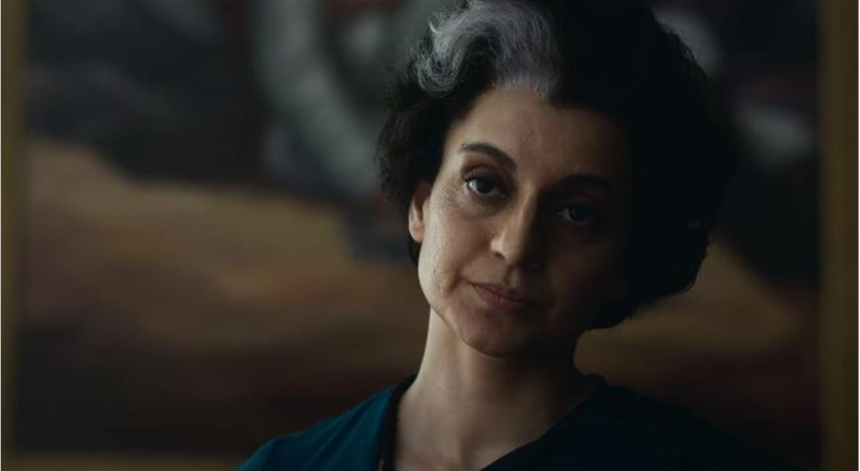In a recent development in the ongoing debate over the release of Kangana Ranaut’s film Emergency, the Bombay High Court has issued a crucial directive to the Central Board of Film Certification (CBFC). Justice Colabawalla has mandated the CBFC to make a decisive call on whether to approve the film for release by September 25, 2024. This article delves into the background of the case, the court’s directive, the potential implications for the film industry, and the broader context surrounding the film’s release.
Background of the Case
Overview of Emergency
Emergency is a highly anticipated film directed by and starring Kangana Ranaut. The film, which explores a critical period in Indian history, specifically the Emergency era declared by then-Prime Minister Indira Gandhi, has generated significant interest and controversy. Kangana Ranaut, known for her bold and outspoken views, has been at the center of discussions regarding the film’s content and its potential impact on audiences.
Controversies and Challenges
The film has faced several challenges, including debates over its portrayal of historical events and concerns regarding its impact on political sensitivities. The controversy surrounding the film has heightened scrutiny and led to various legal and regulatory hurdles. The CBFC, responsible for certifying films for public release, has been at the center of this dispute, with various stakeholders urging for a decision on the film’s release.
The Bombay High Court’s Directive
Justice Colabawalla’s Order
On September 18, 2024, Justice Colabawalla of the Bombay High Court issued a directive to the CBFC, instructing the board to decide on the release of Emergency by September 25, 2024. The court emphasized that the CBFC must make a clear decision regarding the film’s certification, and the board’s stance will be respected, whatever it may be.
Implications of the Directive
The court’s directive has several important implications:
- Clarification and Timeliness: The order provides a clear timeline for the CBFC’s decision, aiming to resolve the uncertainty surrounding the film’s release. This timely resolution is crucial for the filmmakers, distributors, and audiences who are eagerly awaiting the film’s release.
- Authority of the CBFC: By instructing the CBFC to make a decision, the court reinforces the board’s role as the primary authority on film certification. The directive underscores the importance of the CBFC’s independence and its responsibility to evaluate films based on established criteria.
- Legal Precedents:Kangana Ranaut court’s decision may set a precedent for how similar cases are handled in the future. It highlights the judiciary’s role in ensuring that regulatory bodies like the CBFC act within their mandate and make timely decisions on film certifications.
The Film Industry’s Response
Reactions from Filmmakers and Distributors
Kangana Ranaut film industry has closely followed the developments regarding Emergency. Filmmakers and distributors are particularly interested in the outcome of the CBFC’s decision, as it will impact the film’s release schedule and marketing strategies. The industry’s response reflects a mix of anticipation and concern, with stakeholders eager for a resolution to the ongoing debate.
Kangana Ranaut’s Position
Kangana Ranaut, as the director and lead actor of Emergency, has been vocal about the film’s significance and Kangana Ranaut commitment to presenting an honest portrayal of historical events. Ranaut’s position on the film’s release and her responses to the controversy have been a focal point in the media coverage of the film.
Broader Context: Film Certification and Free Expression
Role of the CBFC
Kangana Ranaut The CBFC plays a critical role in the Indian film industry by certifying films for public release and ensuring that they comply with legal and regulatory standards. The board’s decisions can have a significant impact on the film’s content, distribution, and reception.
Balancing Censorship and Free Expression
The debate over Emergency touches on broader issues related to censorship and free expression. While the CBFC is tasked with ensuring that films adhere to certain guidelines, there is ongoing debate about the extent to which these guidelines should influence creative expression. The case raises important questions about the balance between regulatory oversight and the freedom of filmmakers to explore and depict sensitive subjects.
Historical and Political Sensitivities
Kangana Ranaut Emergency deals with a politically sensitive period in Indian history, which adds complexity to the certification process. Films that address historical events and political issues often face additional scrutiny due to their potential impact on public sentiment and historical interpretation. 
The Path Forward: What to Expect
Next Steps for the CBFC
Following the Bombay High Court’s directive, the CBFC will need to complete its review of Emergency by September 25, 2024. The board’s decision will be based on its evaluation of the film’s content, adherence to certification guidelines, and any relevant legal or regulatory considerations.
Potential Outcomes
- Approval for Release: If the CBFC grants certification, Emergency will be cleared for public release. This outcome would allow the film to be distributed and screened according to its planned schedule.
- Rejection or Conditional Certification: If the CBFC rejects the film or grants conditional certification with specific cuts or modifications, the filmmakers may need to make adjustments before the film can be released. This scenario could lead to further negotiations and potential delays in the film’s release.
- Legal Challenges: Depending on the CBFC’s decision, there may be additional legal challenges or appeals. The filmmakers or other stakeholders may seek further judicial review if they disagree with the board’s ruling.
Impact on the Film Industry
The outcome of the case will have implications beyond Emergency. It will influence how films dealing with politically sensitive or controversial subjects are treated by the CBFC and may impact future film certifications and legal disputes.
Conclusion
The Bombay High Court’s directive to the CBFC regarding Kangana Ranaut’s Emergency represents a pivotal moment in the ongoing debate over film certification and creative expression. As the CBFC prepares to make its decision by September 25, 2024, the film industry, stakeholders, and audiences are awaiting clarity on the film’s release.
The case highlights the complex interplay between regulatory oversight, free expression, and political sensitivities in the film industry. It underscores the importance of timely and transparent decision-making by regulatory bodies and the need to balance creative freedom with legal and societal considerations.
As the situation unfolds, the focus will remain on the CBFC’s decision and its implications for Emergency and the broader landscape of film certification in India. The coming days will be critical in shaping the film’s future and addressing the broader questions raised by this high-profile case. ALSO READ:-2024 Supreme Court Dismisses Curative Plea on Telecom AGR Dues: A Comprehensive Analysis of the Judgment and Its Implications





